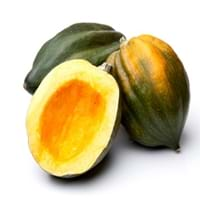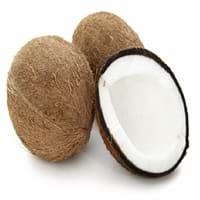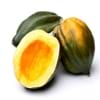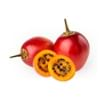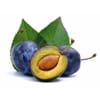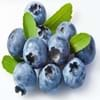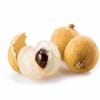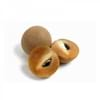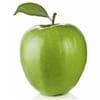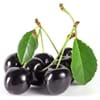Health Benefits
Anti-inflammatory properties, Arthritis treatment, Regulates Blood Sugar
Acidity treatment, Acts as natural antibiotic, Anti-oxidant properties, Aphonia treatment
General Benefits
Boosts immune system, Controls blood sugar levels, Digestive aid
Anti-inflammatory properties, Body hydration, Boosts immune system, Controls blood sugar levels, Digestive aid, Fights against infections, Flu treatment, Healing of wounds, Helps in weight loss, Maintains healthy cholesterol level
Skin Benefits
Nourishes skin, Protects skin from oxidative stress
Anti-aging benefits, Heals sunburn, Hydrates skin, Reduces wrinkles, Skin rejuvenation, Skin revitalization, Treatment of skin diseases
Hair Benefits
Prevents hair loss, Promotes longer and healthier hair, Regulates hair growth
Promotes longer and healthier hair, Regulates hair growth, Rejuvenates scalp, Shiny hair, Treatment of dandruff
Allergy Symptoms
Asthma, Red rash, Swelling of mouth, tongue or lips
Abdominal pains, Breathing difficulty, Itching in tongue and other parts of mouth, Nasal congestion, Nausea, Runny nose, Vomiting
Side Effects
Diarrhoea, Vomiting
Allergic reaction, Indigestion, Weight gain
Best Time to Eat
Along with meal, As a snack in the late afternoon, Don't eat after meal, Eat the fresh ones, avoid mixing with any other foods, don't eat after meal.
Along with meal, Best if taken as a breakfast (or empty stomach), As a snack in the late afternoon, Morning time (before lunch)
Vitamin B5 (Pantothenic Acid)
Vitamin C (Ascorbic Acid)
Vitamin E (Tocopherole)
Not Available
Vitamin K (Phyllochinone)
Not Available
Lutein+Zeaxanthin
Not Available
Phytosterol
Not Available
Calories in Fresh Fruit with Peel
Not Available
Calories in Fresh Fruit without Peel
Not Available
Calories in Frozen Form
Not Available
Type
Berry
Tree fruit, Tropical
Season
Winter
All seasons
Varieties
Bush Table Queen, Heirloom Table Queen, Festival Hybrid, Early Acorn Hybrid, Table Ace, Ebony and Cream of the Crop
Tall Varieties- West Coast Tall, Laccadiv Micro, Andaman Ordinary, Fiji, Kappadam, San Ramon, Philippines, Spicate, and Pratap. Dwarf Varieties- Chowghat Orange Dwarf (COD) and Chowghat Green Dwarf (CGD)
Color
Dark green, Green-yellow, Orange green
Brown, Green
Inside Color
Yellow
White
Taste
Sweetish
Juicy, Sweetish
Origin
Central America, North America, Unknown
America, India
Soil Type
Well-drained
Clay, Sand
Climatic Conditions
Cold, Sunny
Hot, Humid
Facts about
- It was named as Acorn Squash for its resemblance to a large ribbed acorn.
- It is said that squash was being grown in Mexico as long as 10,000 years ago.
- It was the first food cultivated by native American Indians.
- Burning coconut's husk helps repel mosquitoes.
- Surveys say that falling coconut kills hundreds every year.
- Coconut water is used as a substitute Blood Plasma & is called "father of modern tissue culture science".
Top Producer
China
Indonesia
Other Countries
Egypt, India, Iran, Italy, Mexico, Russia, Turkey, Ukraine, United States of America
Brazil, India, Philippines, Sri Lanka
Top Importer
Costa Rica
United States of America
Top Exporter
United States of America
Philippines
Botanical Name
Cucurbita Pepo
Cocos nucifera
Synonym
Winter Squash
Not Available
Subkingdom
Tracheobionta
Tracheobionta
Division
Magnoliophyta
Magnoliophyta
Class
Magnoliopsida
Liliopsida
Subclass
Dillenhidae
Arecidae
Order
Cucurbitales
Arecales
Family
Cucurbitaceae
Arecaceae
Generic Group
Not Available
Arecaceae
Compare Acorn squash and Coconut
It is important compare Acorn squash and Coconut as both the fruits have a different nutritional value. Their comparison can be done on the basis of their vitamin and mineral content, calories, benefits as well as characteristics, making it easier for us to choose the best fruit for our diet. Their general health benefits are as follows:
Acorn squash Benefits: boosts immune system, controls blood sugar levels and digestive aid.
Coconut Benefits: anti-inflammatory properties, body hydration, boosts immune system, controls blood sugar levels, digestive aid, fights against infections, flu treatment, healing of wounds, helps in weight loss and maintains healthy cholesterol level.
Fruits are also used as a remedy for various hair problems. The hair benefits of Acorn squash are: prevents hair loss, promotes longer and healthier hair and regulates hair growth and hair benefits of Coconut are: promotes longer and healthier hair, regulates hair growth, rejuvenates scalp, shiny hair and treatment of dandruff. Some fruits are known to cause allergic reactions. The allergy symptoms of first fruit are: asthma, red rash and swelling of mouth, tongue or lips and the symptoms of second fruit are: abdominal pains, breathing difficulty, itching in tongue and other parts of mouth, nasal congestion, nausea, runny nose and vomiting. Get sorted Acorn squash vs Coconut comparison with the help of fruit comparison tool by fruitvs.com.
